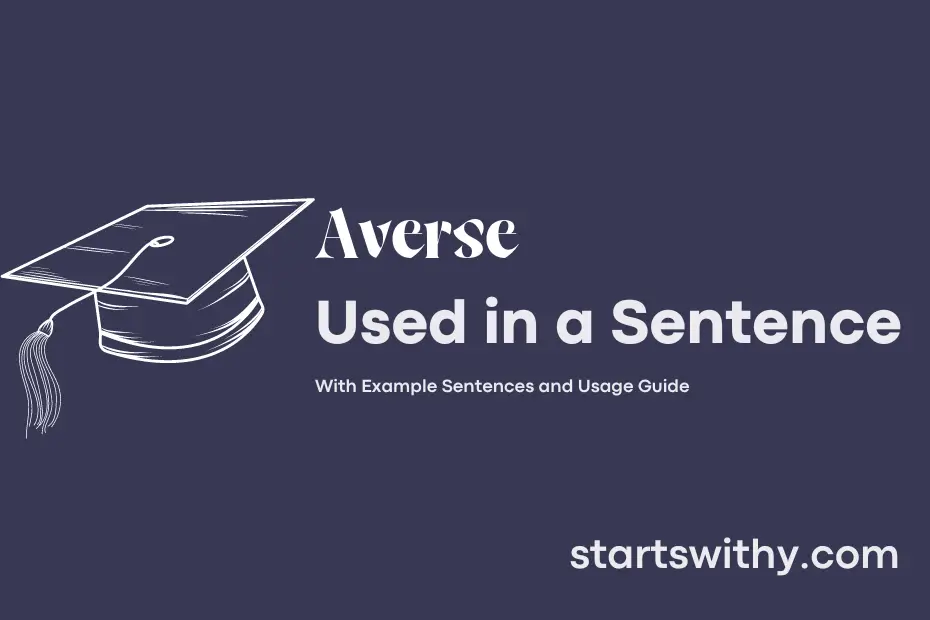Have you ever felt a strong aversion towards something? Averse, a term often used to describe a strong dislike or repulsion towards a particular thing, is a common feeling experienced by many.
When someone is averse to something, they have a deep-seated reluctance or distaste towards it. This feeling can vary in intensity, from a mild discomfort to a strong aversion that influences one’s choices and actions.
7 Examples Of Averse Used In a Sentence For Kids
- I am averse to eating vegetables.
- She is averse to playing in the rain.
- He is averse to wearing a hat.
- We are averse to waking up early.
- They are averse to cleaning their room.
- You are averse to taking a bath.
- The cat is averse to taking a walk outside.
14 Sentences with Averse Examples
- Many students are averse to early morning classes because they prefer to sleep in.
- Some students are averse to participating in group projects as they prefer working alone.
- Several students are averse to studying for subjects they have no interest in.
- It is common for students to be averse to attending lectures that they find boring or unengaging.
- Many students are averse to seeking help from professors or classmates when they are struggling with their studies.
- Some students are averse to volunteering for extracurricular activities due to lack of time or interest.
- Several students are averse to public speaking, making presentations a challenge for them.
- It is not uncommon for students to be averse to using public transportation to commute to college.
- Many students are averse to joining student clubs or organizations, preferring to focus solely on academics.
- Some students are averse to trying new study techniques, sticking to methods they are comfortable with.
- Several students are averse to taking risks when it comes to experimenting with their career choices.
- It is common for students to be averse to taking up leadership roles in college committees or events.
- Many students are averse to networking with professionals or alumni for career opportunities.
- Some students are averse to seeking mental health support, despite experiencing stress and anxiety.
How To Use Averse in Sentences?
Using averse in a sentence is simple once you understand its meaning. Averse means having a strong dislike or opposition to something.
To use averse in a sentence, first identify the subject who is experiencing the dislike or opposition. For example, “She is averse to taking risks.”
Next, think about what they are opposed to or dislike. This could be an action, a situation, or a specific thing. Like, “He is averse to public speaking.”
Remember that averse is typically followed by the preposition “to” when used in a sentence. This indicates what the person is opposed to. For instance, “They are averse to change.”
It’s important to note that averse is an adjective and should be used to describe someone’s feelings or attitudes towards something. You can also use it in a negative context to show a strong disliking towards something.
By following these simple steps and keeping in mind the meaning of averse, you can easily incorporate it into your writing or speech. Practice using averse in various sentences to become more comfortable with its usage.
Conclusion
In summary, being averse to something means having a strong dislike or opposition towards it. People may feel averse to certain foods, activities, or situations due to personal preferences or past experiences. For example, someone may feel averse to spicy foods because they do not enjoy the sensation of heat or discomfort it brings.
Understanding what we are averse to can help us make more informed decisions and avoid unnecessary discomfort. By being aware of our aversions, we can better navigate our preferences and seek out experiences that align with our likes and dislikes. It is important to acknowledge and respect our individual aversions to ensure our well-being and comfort in various aspects of life.



